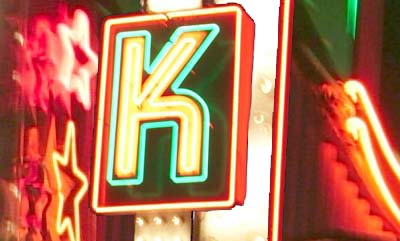Published in Variety, Jan. 15, 2002
Director short takes
Helmers elaborate on myriad approaches
JEAN-PIERRE JEUNET
 "Amelie" represented a departure for French helmer Jean-Pierre Jeunet,
previously
known for the baroquely dystopian "Delicatessen" and "City of Lost
Children."
"Amelie" represented a departure for French helmer Jean-Pierre Jeunet,
previously
known for the baroquely dystopian "Delicatessen" and "City of Lost
Children."
"I wanted to make a positive film for a long time, maybe because I did three
dark
movies before," says the director. "I had worked on this collection of
stories for maybe
25 years that I wanted to make into a film. In fact, it was very difficult
to find the
(unifying) concept. One day I understood the center of the story. It was
just one little
story in the middle of the other stories, the story of the woman helping
other people.
And then everything was easy -- easy to write, easy to shoot, easy to edit."
"Amelie's" setting -- a kind of storybook Paris -- also represented a
departue for the
filmmaker. "The challenge for me was to shoot outside, because I did three
movies (on
a soundstage)," he says. "I tried to get the same quality of work. To shoot
outside, it
wasn't easy in Paris, because the Parisians are pretty tough. I remember one
time, a
guy parked his car in front of the camera, and he said, 'F--k the cinema!'
That's Paris."
Although Jeunet says he makes films for himself, he says the opportunity to
please
viewers is only frosting on the cake. "I didn't expect success like this.
It's much brighter
than my other films, 'Delicatessen' and 'The City of Lost Children,' which I
did with
(co-director) Marc Caro. It's impossible to put some personal emotion in
(when
collaborating with someone else).
"I remember sometimes I wanted to put a love story in and I know he doesn't
like this
kind of story. So, I thought I would keep this idea for my own film. Almost
all the stories
in 'Amelie' are true, except for the joke with the garden gnome around the
world. I use
a lot of small details from my childhood. I modify a lot of things, but the
hypochondriac
woman in the cafe -- that's my mother. That's my life."
— Sharon Knolle



